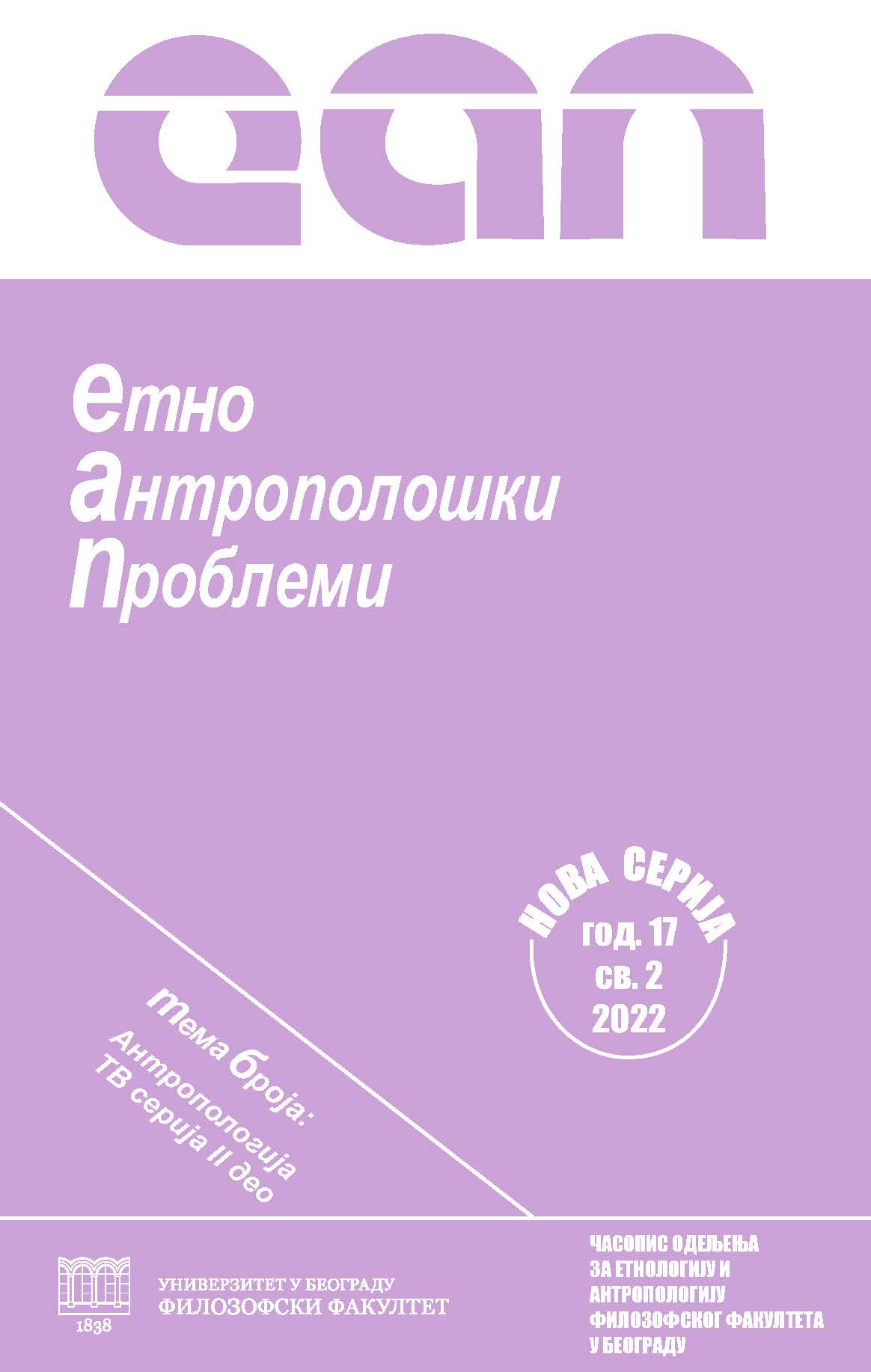Oni, koje volimo da mrzimo:
antropološka analiza serije Naslednici
kao kritika (ljudi) poznog kapitalizma
Those We Love to Hate: An Anthropological Analysis of Succesion as a Critique of Late-Stage Capitalism
Author(s): Nevena Milanović MinićSubject(s): Anthropology
Published by: Филозофски факултет, Универзитет у Београду
Keywords: Succession; family TV drama; late-stage capitalism; incomplete antihero
Summary/Abstract: The paper tackles interpretations of late-stage capitalism and characters as incomplete antiheroes in the Succession tv-series (HBO 2018-). The characters in Succesion are the members of the wealthy American Roy family, in possesion of their own, family-run media conglomerate-empire, named Waystar RoyCo. Family businesses figure as symbols and pillars of success and are thought to preserve "good family values" in the official everyday and western political discourse. But Succession breaks down this myth and glorification of family-run businesses and treats it as a model of corrupted relationships that mirror themselves onto the smaller scales – specially onto family structure as a basic societal denominator. Following this premise is the second compontent – emotional reactions generated through morally ambiguous actions undertaken by every single character in the series. The lack of protagonist in the series and the portrayal of every character as an incomplete antihero leads us to the second important premise of the paper: the tropologization of characters, where every character embodies certain broader system flaw(s). Portrayed in this manner, characters are bearers of identity traits of late-stage capitalism hegemony. By exploiting their flaws, internal conflicts and morally ambiguous acts, the flaws of the system itself are revealed to the viewers. The dynamics of corrupted and broken relationships within the Roy family lead to perceiving it as an anti-family, which mirrors the insanity and downfall of the same system. The sardonic humor and brutalistic portrayal of the lack of ethics and morals generate strong emotional reactions among audiences that result in "liking the unlikeable". This controversial "loving to hate" is rooted in the cognitive and moral distance that builds up during the course of the series, which enables the viewers to take the standpoint of moral superiority.
Journal: Етноантрополошки проблеми
- Issue Year: 17/2022
- Issue No: 2
- Page Range: 561-576
- Page Count: 16
- Language: Serbian

